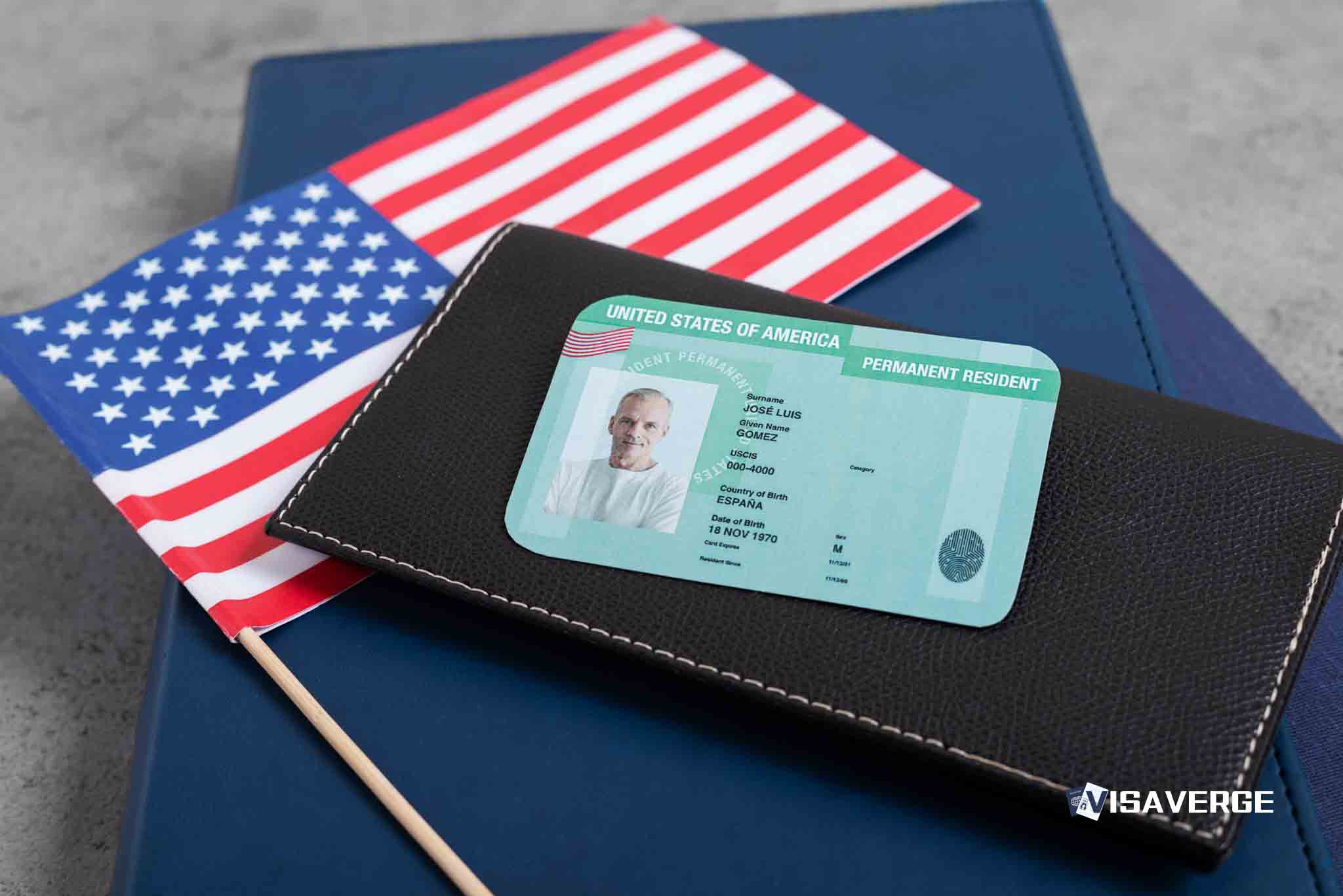Key Takeaways
• The NIW lets qualified EB-2 applicants bypass job offers and labor certification for U.S. residency.
• USCIS updated EB-2 NIW guidance in January 2025 with clearer criteria and evidence requirements.
• Applicants must prove EB-2 eligibility, national importance of work, and benefit of waiving job offer.
The National Interest Waiver (NIW) is a special pathway within the EB-2 employment-based green card category. It allows certain highly skilled individuals to apply for permanent residence in the United States 🇺🇸 without needing a specific job offer or going through the labor certification process. This waiver is designed for people whose work benefits the country as a whole, not just a single employer or local area. The United States Citizenship and Immigration Services (USCIS) updated its guidance on the EB-2 NIW process in January 2025, making the requirements clearer for applicants and officers.
This guide explains the National Interest Waiver in detail, covering eligibility, the three main criteria, the application process, practical tips, and what the recent USCIS updates mean for applicants. It also includes real-world examples and practical advice to help you understand if this pathway fits your situation.

What Is the National Interest Waiver (NIW)?
The National Interest Waiver is a way for certain professionals to apply for a green card under the EB-2 category without needing a job offer from a U.S. employer or going through the labor certification process. Normally, most employment-based green card applicants must have a job offer and their employer must prove that no qualified U.S. worker is available for the job (labor certification). The NIW lets you skip these steps if you can show that your work is so important to the United States 🇺🇸 that it is in the national interest to let you apply directly.
Who Can Apply for the EB-2 National Interest Waiver?
To apply for the National Interest Waiver, you must first qualify for the EB-2 category. The EB-2 is for people who are either:
- Professionals with an advanced degree (master’s degree or higher, or a foreign equivalent)
- People with a U.S. bachelor’s degree plus at least five years of progressive, post-bachelor’s work experience in their field (USCIS treats this as equal to an advanced degree)
- Individuals with exceptional ability in the sciences, arts, or business (meaning you have a much higher level of skill than most people in your field, and your work benefits the U.S. economy, culture, or welfare)
If you meet one of these requirements, you can then try to qualify for the National Interest Waiver.
The Three Main Criteria for the National Interest Waiver
USCIS uses three main criteria to decide if you qualify for the National Interest Waiver. These are based on the most recent guidance, effective January 15, 2025.
1. Qualification for the Underlying EB-2 Category
Before you can get the waiver, you must first show that you qualify for the EB-2 category itself. This means you must have:
- An advanced degree (master’s or higher), or
- A bachelor’s degree plus five years of progressive experience in your field, or
- Exceptional ability in the sciences, arts, or business
Exceptional ability means you have a much higher level of expertise than most people in your field. You must show that your skills and work bring clear benefits to the United States 🇺🇸. Professions that usually qualify include architects, engineers, lawyers, doctors, teachers, and others where a bachelor’s degree or higher is the minimum requirement.
Evidence you might need:
– Diplomas and transcripts
– Letters from employers showing your work experience
– Awards, publications, or proof of special achievements
– Letters from experts in your field
2. The Proposed Endeavor Has Substantial Merit and National Importance
You must prove that your planned work (your “endeavor”) has both substantial merit and national importance.
- Substantial merit means your work is important and has value. It could improve the economy, healthcare, education, the environment, or another key area.
- National importance means your work will have an impact across the United States 🇺🇸, not just in one city or region. Your work should benefit the country as a whole.
Examples of endeavors with national importance:
– Developing new medical treatments that could help people across the country
– Creating technology that improves energy efficiency nationwide
– Research that leads to better education methods used in schools across the United States 🇺🇸
Evidence you might need:
– Publications, patents, or media coverage about your work
– Letters from experts explaining why your work matters to the country
– Proof that your work has already had a national impact or is likely to do so
3. Waiving the Job Offer and Labor Certification Requirements Would Benefit the U.S.
Normally, green card applicants need a job offer and must go through the labor certification process. For the NIW, you must show that skipping these steps is better for the United States 🇺🇸.
You need to prove:
– Your work is so important that requiring a job offer and labor certification would actually hurt the national interest
– You are well-positioned to advance your work, meaning you have the right education, skills, and a record of success
– On balance, it helps the United States 🇺🇸 more to waive these requirements than to keep them
Evidence you might need:
– Proof of your education, skills, and past achievements
– Letters from experts or employers showing you are the right person to do this work
– A clear plan for how you will continue your work in the United States 🇺🇸
How to Apply for the EB-2 National Interest Waiver
The application process involves several steps. Here’s a simple breakdown:
Step 1: Gather Evidence
Collect documents that prove you meet the three main criteria. This includes:
– Diplomas, transcripts, and proof of work experience
– Publications, patents, or awards
– Letters from experts in your field
– Evidence of the national importance of your work
Step 2: File Form I-140
You must file Form I-140, Immigrant Petition for Alien Worker with USCIS. This form is used to show that you qualify for the EB-2 category and the National Interest Waiver.
- Include all your evidence and a detailed cover letter explaining how you meet each requirement.
- You do not need a job offer or employer sponsorship for the NIW.
Step 3: File Form I-485 (If Eligible)
If you are already in the United States 🇺🇸 and a green card is available for your category, you may file Form I-485, Application to Register Permanent Residence or Adjust Status at the same time as your I-140 (this is called “concurrent filing”). If you are outside the United States 🇺🇸, you will go through consular processing at a U.S. embassy or consulate.
Step 4: Wait for USCIS Decision
USCIS will review your petition and may ask for more evidence. Processing times can vary, but they have been stable since the 2025 guidance update.
What Changed in the 2025 USCIS Guidance?
The January 2025 update to the USCIS policy manual made several things clearer for EB-2 NIW applicants:
- Clearer definitions of who qualifies as a “professional” and what counts as an advanced degree or exceptional ability
- More specific evidence requirements for proving your qualifications and the national importance of your work
- Better guidance for officers on how to decide these cases, leading to more consistent decisions
As reported by VisaVerge.com, these changes help both applicants and immigration officers understand exactly what is needed for a successful petition. However, the burden of proof remains high, especially when showing that your work is truly of national importance and that waiving the job offer and labor certification is in the country’s best interest.
Real-World Examples
To help you understand how these rules work in practice, here are some real-world scenarios:
Example 1: Medical Researcher
Dr. Lee is a scientist with a PhD in biology. She has developed a new method for detecting cancer early, which could save thousands of lives across the United States 🇺🇸. She has published her findings in top journals and received awards for her work. Dr. Lee applies for the EB-2 NIW, showing her advanced degree, her research’s national importance, and letters from experts explaining why her work benefits the country. She does not need a job offer because her work is so important to public health.
Example 2: Renewable Energy Engineer
Mr. Patel is an engineer with a master’s degree and several patents in solar energy technology. His inventions have been adopted by companies across the United States 🇺🇸, helping reduce energy costs and pollution. He applies for the NIW, providing proof of his education, patents, and letters from industry leaders. He explains how waiving the job offer and labor certification lets him continue his work, which benefits the entire country.
Example 3: Education Specialist
Ms. Garcia is an education expert with a bachelor’s degree and over ten years of experience developing new teaching methods. Her programs have been used in schools in many states, improving student performance. She applies for the NIW, showing her experience, the national reach of her work, and support from school districts and education experts.
Practical Tips for a Strong Application
- Be thorough with your evidence. Include as much proof as possible of your education, skills, and the national impact of your work.
- Get strong letters of support. Ask experts in your field to write letters explaining why your work matters to the United States 🇺🇸.
- Explain your future plans. Show how you will continue your important work in the country.
- Address all three criteria clearly. Make sure your application explains how you meet each requirement.
- Stay up to date. Check the official USCIS EB-2 NIW page for the latest information and forms.
Common Questions About the EB-2 National Interest Waiver
Do I need a job offer for the NIW?
No. The main benefit of the National Interest Waiver is that you do not need a job offer or employer sponsorship.
Can I self-petition?
Yes. You can file the petition yourself, without an employer.
How long does the process take?
Processing times can vary, but they have been stable since the 2025 guidance update. Check the USCIS website for current estimates.
Can my family come with me?
Yes. Your spouse and unmarried children under 21 can apply for green cards as your dependents.
What if I am outside the United States 🇺🇸?
You can still apply for the NIW. If approved, you will go through consular processing at a U.S. embassy or consulate.
Summary Table: The Three Main Criteria
| Criterion | Description |
|---|---|
| 1. Qualification for EB-2 | Advanced degree or exceptional ability as defined by USCIS, including degree equivalency via experience. |
| 2. Substantial Merit and National Importance | Proposed work must have significant impact and benefit at a national level. |
| 3. Benefit of Waiving Labor Certification | Demonstrate that waiving job offer and labor certification requirements benefits the U.S. national interest. |
Final Thoughts and Next Steps
The National Interest Waiver is a powerful option for highly skilled professionals whose work benefits the United States 🇺🇸 as a whole. The updated USCIS guidance from January 2025 makes the requirements clearer, but the process still demands strong evidence and careful preparation. If you believe your work has national importance, gather your documents, seek expert letters, and consider consulting an immigration attorney for help.
For the most current details, always check the official USCIS EB-2 NIW page. This resource provides up-to-date forms, instructions, and policy updates.
By understanding the three main criteria and preparing a strong case, you can improve your chances of success with the EB-2 National Interest Waiver.
Learn Today
National Interest Waiver (NIW) → A waiver allowing EB-2 applicants to skip job offers and labor certification based on work’s national importance.
EB-2 Category → An employment-based green card class for advanced degree holders or those with exceptional ability.
Labor Certification → A process proving no qualified U.S. worker is available before an employment-based green card is granted.
Form I-140 → The official USCIS petition form filed to request permanent residency under EB-2 or NIW.
Exceptional ability → A higher-than-average skill level in sciences, arts, or business benefiting the U.S. economy or welfare.
This Article in a Nutshell
The National Interest Waiver (NIW) allows certain professionals to obtain U.S. green cards without a job offer. Updated USCIS rules in 2025 clarify clear eligibility criteria. Meeting three main requirements enhances approval chances, making NIW a practical path for impactful, highly skilled immigrants benefiting the nation widely.
— By VisaVerge.com








